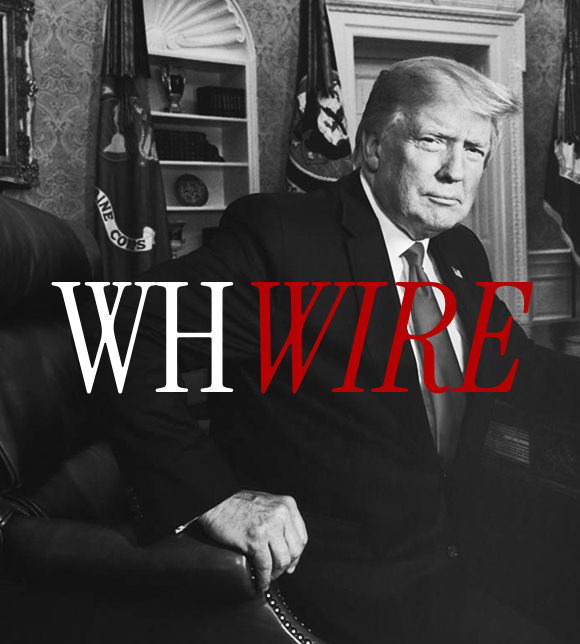ENSURING AMERICAN PHARMACEUTICAL SUPPLY CHAIN RESILIENCE BY FILLING THE STRATEGIC ACTIVE PHARMACEUTICAL INGREDIENTS RESERVE
By the authority vested in me as President by the Constitution and the laws of the United States of America, it is hereby ordered:
Section 1. Purpose. During my first term, my Administration acted to protect the health and security of the American people by restoring capacity for domestic production of essential pharmaceutical products. Executive Order 13944 of August 6, 2020 (Combatting Public Health Emergencies and Strengthening National Security by Ensuring Essential Medicines, Medical Countermeasures, and Critical Inputs Are Made in the United States), directed certain executive departments and agencies (agencies) to consider a variety of actions to increase their domestic procurement of Essential Medicines, Medical Countermeasures, and Critical Inputs, as defined in section 7 of that order, and to identify supply chain vulnerabilities. The Food and Drug Administration published a list of Essential Medicines, Medical Countermeasures, and Critical Inputs in October 2020. The Office of the Assistant Secretary for Preparedness and Response (ASPR) within the Department of Health and Human Services later reduced the list to 86 essential medicines.
Nearly two in five prescription finished drug products are made in the United States, including many of the essential medicines. However, when it comes to Active Pharmaceutical Ingredients (APIs), the biologically active components of finished drug products, only about 10 percent of the APIs by volume for the finished drug products used in the United States are made here.
During my first term, my first Administration created a Strategic Active Pharmaceutical Ingredients Reserve (SAPIR) to stockpile APIs. Stockpiling APIs is advantageous as APIs are generally lower-cost and have longer shelf lives than the finished drug products they make. Filling the SAPIR will also insulate the United States from the concentration of foreign, sometimes adversary, nations in the world-wide supply of the Key Starting Materials used to make APIs. Moreover, Government purchases of APIs to fill the SAPIR can encourage more domestic production of APIs.
Unfortunately, the Biden Administration failed to advance the goal of ensuring domestic sources for essential medicines and their precursors despite spending billions of dollars on efforts to secure supply chains. Domestic production and procurement did not increase and the SAPIR is nearly empty.
Sec. 2. Filling the SAPIR with APIs for the Most Critical Medicines. (a) Within 30 days of the date of this order, the ASPR shall develop a list, in consultation with agencies with scientific expertise, the Assistant to the President for Economic Policy (APEP), and the Assistant to the President and Homeland Security Advisor (APHSA), of approximately 26 drugs that are especially critical to the health and security interests of the Nation (the critical drugs) and an accounting of existing, available funds that can be utilized, consistent with statutory authorities, to finance the preparation and opening of the SAPIR repository and to obtain and maintain the 6-month supply of APIs for the critical drugs referenced in subsection (c) of this section shall be provided to the Director of the Office of Management and Budget (OMB). The OMB shall provide assistance to the Secretary of Health and Human Services to facilitate the repurposing of available funds, consistent with law.
(b) Within 120 days of the date of this order and subject to the availability of funds identified pursuant to subsection (a) of this section, the ASPR shall, in coordination with such other agencies as are necessary, take all measures to ready the existing SAPIR repository so that it can begin receiving and maintaining APIs.
(c) Subject to the availability of funds identified pursuant to subsection (a) of this section, the ASPR shall obtain a 6-month supply of the APIs needed to make the critical drugs to fill the SAPIR, with a preference for obtaining domestically manufactured APIs if possible. The ASPR shall place such APIs within the SAPIR repository no later than 30 days after the repository is certified by the ASPR as ready to receive and maintain APIs.
Sec. 3. Ensuring SAPIR Resilience. (a) Within 90 days of the date of this order, the ASPR shall provide the APHSA, the APEP, and the OMB with an update to the ASPR’s 2022 list of 86 essential medicines and medical countermeasures, along with a plan to:
(i) obtain from domestic manufacturers, where possible;
(ii) store; and
(iii) maintain a 6-month supply of APIs for drugs on the updated essential medicines list if they have not already been addressed in the list of critical drugs identified pursuant to section 2(a) of this order.
(b) The plan provided pursuant to subsection (a) of this section shall include a proposal and cost estimate for opening a second SAPIR repository in the United States within 1 year of the date of this order.
Sec. 4. General Provisions. (a) Nothing in this order shall be construed to impair or otherwise affect:
(i) the authority granted by law to an executive department or agency, or the head thereof; or
(ii) the functions of the Director of the Office of Management and Budget relating to budgetary, administrative, or legislative proposals.
(b) This order shall be implemented consistent with applicable law and subject to the availability of appropriations.
(c) This order is not intended to, and does not, create any right or benefit, substantive or procedural, enforceable at law or in equity by any party against the United States, its departments, agencies, or entities, its officers, employees, or agents, or any other person.
(d) The costs for publication of this order shall be borne by the Department of Health and Human Services.
DONALD J. TRUMP
THE WHITE HOUSE,
August 13, 2025.














